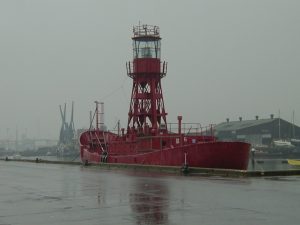When I was a boy I believed odd things, the same way probably most boys do, anywhere. Most of all, I believed We were right and They were wrong, just the way I was told to. It was easy. Everything I saw and read said so. We had won the war, so we were good. The IRA went around blowing people up and that was very close, because we lived near Warminster, the infantry training town where servicemen were under orders not to wear uniform off barracks in case they were targetted, so they were bad. The IRA I mean, not the army. The army came to my little town quite a lot, in the summer when they literally dropped in by helicopter onto the Nelson Haden school playing fields and piled unloaded FNs and Sterling submachine guns onto wooden trestle tables so all of us little boys could play with them, which if nothing else taught us how to keep small fingers clear of a breech and how much strength it took to cock an SLR, not least as the charging handle was on the left-hand side.
We’d watch a hotel or a department store blowing up on the news, or hear how someone in the army had got shot when he opened the door of his house. What we didn’t hear was why any of this was happening, nor where suddenly out of the blue someone who wanted to start sniping soldiers could find access to anything other than a twelve-bore to do it. Then we dimly heard of NORAID, but that was somehow respectable. Why, a Kennedy was part of it! How bad could that be? The Americans were on our side, after all. I remember once at primary school someone saying that and a teacher going ballistic, raving that the Americans were on their own side and nobody else’s, which made no sense at all and was very much not repeated. We had the evidence of Combat and an almost infinite number of war films to tell us that.
At Christmas, just in case we’d missed the point, the RAF band or the army band would visit the school and play us a selection of hits of the day, which was a pretty good feat of music if not arms. Naturally, the army came along to host a careers day once a year. I made a friend for a long time when I asked in the Any Questions part if there were any plans to bring back conscription. Apparently there weren’t. I’d wanted to ask what happened if you were told to do one thing in the army, like say, go to Northern Ireland, then a week later after an election you were told not to. I didn’t know which one was right, and doing the right thing seemed to me important at the time. When I finally did articulate this I was told that orders were orders. Which was obviously true. I didn’t know then that this hadn’t counted for much at Nuremburg. But of course, that was Them saying that. Not Us.
I thought very seriously about joining the army. More precisely I was going to an interview to be a lieutenant in the Royal Marines, but I had the chance to earn £600 for that one week and in those days that was very serious money indeed so I did that instead.
I don’t know when it changed. I stopped trusting what I was told. It was a combination of things, as life always is. It was partly the Miners Strike. I didn’t want to be a miner and nor did anyone who I ever met whose family had been in any way connected with coal mining, but it was obvious there was something deeply wrong with what I was being told. I began to wonder whether We were still right and They were still wrong. Then a friend told me about a prison officer she shared a flat with whose hobby, when some people were getting into orienteering or macrame was to put on a police uniform without any identification badges, get in a bus and go and have a fight, safe in the knowledge that so long as she was attacking striking miners absolutely nothing at all would happen to either her or her career.
Another friend was filming for the BBC at a strike when he walked past a police van full of guns. The police and his producer told him it was very much neither in his nor the public interests to film this and put it on the Nine O’Clock news. Years later I talked to him again after the Hungerford Massacre when someone whose lifetime’s work was in ballistics and practical shooting claimed to have photographic evidence that the official version of the shooting wasn’t exactly four-square with where certain bullet holes were. The Prime Minister then and now refused point blank to hold a public inquiry into what was the first mass public shooting in the UK by a civilian. The same thing happened: it’s not going to be filmed. We don’t need to look at this again. We’ve been told what happened. It’s not in the public interest to ask.
Gotcha
Then as now, it seemed that the public agenda was set by the tabloid press. Certainly the politics of Us and Them are exactly the same. The sinking of the Belgrano summed it up for me. Back in the Falklands War an old US Navy aircraft carrier had been flogged off to the Argentinians who claimed that the Falkland Islands belonged to them, a point which the Foreign Office had tabled for discussion with Argentina every year since 1946. Whoever the islands belonged to, a Royal Navy submarine sunk the Belgrano. Somewhere over 300 Argentinian conscript sailors died. In Downing Street Margaret Thatcher appeared on TV, asking us all to ‘rejoice.’ This isn’t a figure of speech; that is exactly what she said. The Sun ran the adult and sober headline: Gotcha.
Which was strange, because when the Argentinians attacked the Royal Navy and killed far fewer British sailors The Sun headline ran: Bastards. The same thing had happened. Young men had been killed. They were all only following orders, every last one of them, and in the Argentinians’ case, without even the choice of whether they joined up or not. But when one kind of young man died we were told that was bad and another kind of young man died we were told by the head of state on TV to rejoice.
The Conservative Party chairman got his mistress pregnant. He also got an injunction to ensure that the child’s name could never be mentioned in the press and the press loyally went along with this completely. It was OK to say in print that Freddie Starr ate someone’s hamster (he didn’t) or that Elton John raped children (he expensively didn’t), no problems for the press there. It was just the truth that was a problem. Matrix-Churchill helped more. The government was entirely happy to send a businessman to prison for doing what they knew all along he was doing. The Defence Minister Michael Heseltine got one of his staff sent to prison for telling the truth after he’d decided the electorate didn’t need to know that not only were US cruise missiles in the UK but that HMG had no say in it one way or the other. The same way as when in 1986 the US Air Force flew out of Upper Heyford in Gloucestershire to bomb the Chinese Embassy in Libya the Prime Minister was only told about this after the planes were in the air out of politeness, not that there was ever any possibility whatsoever of her being able to cancel their mission. The fact that the Chinese Embassy wasn’t supposed to be the target wasn’t the issue. We didn’t see the tabloids jumping up and down about sovereignty then.
Eventually we had a different government. They told us, with the loyal and unflinching support of the press that there were chemical weapons in Iraq. There were not and the people saying there were knew that every shred of evidence said there weren’t.
I stopped believing we were right. I stopped believing I was being told the truth. I stopped feeling any obligation whatsoever to any idea of country, or patriotism or national identity or the flag apart from being embarrassed being recognised as English abroad and finding the Union flag anything other than a piece of cloth. It baffles me how anyone can think otherwise. So this week, when nobody even bothers to deny that governments of my country in my lifetime have lied to me and every other citizen time and time again, excuse me if I don’t join in.







